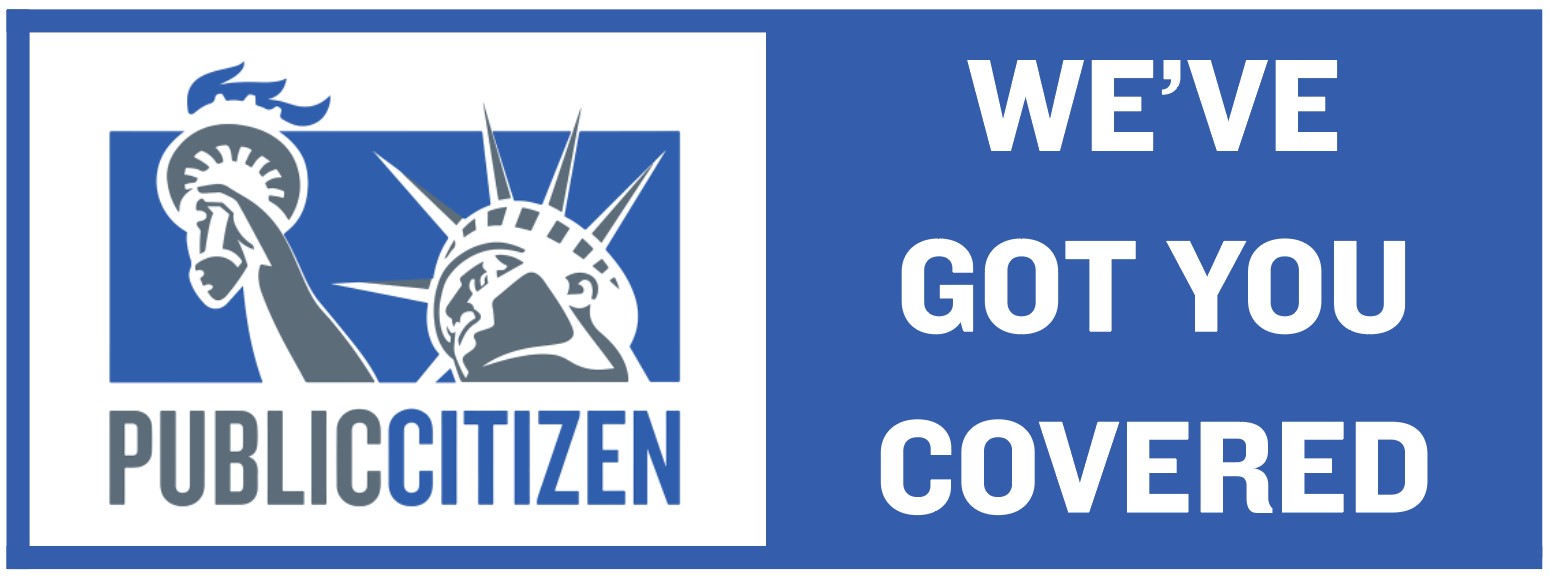Physicians’ Group Endorsement; Savings After Just One Year; Utah’s Jet-Setting Drug Program; Industry’s ‘Choice’ Is False PR
Public Citizen Has You Covered

Welcome to this week’s edition of “We’ve Got You Covered,” a weekly tipsheet designed to highlight key news about Medicare for All and call out the biggest industry lies and falsehoods about universal health care. Please send tips, feedback and questions to Mike Stankiewicz at mstankiewicz@citizen.org or (202) 588-7779.
AMERICAN COLLEGE OF PHYSICIANS ENDORSES MEDICARE FOR ALL
The largest specialty medical society and second-largest physicians group in the U.S. is throwing its support behind Medicare for All.
“There is increasing frustration among our patients with our current system or what I would call, lack of system,” said Robert McLean, president of the American College of Physicians. “And I think there’s increasing frustration with all the physicians and other clinicians that are trying to deliver care.”
The group, which represents 159,000 physicians, previously supported a public option but said it updated its position as the cost of care continues to skyrocket and because too many patients remain uninsured or underinsured.
In a related endorsement, more than 2,000 physicians on Monday announced an open letter, prescribing single-payer Medicare for All for the American public, that ran today as a full-page ad in The New York Times.
FORMER HEALTH INSURANCE EXEC REVEALS ULTIMATE PR DECEIT: CHOICE
The idea that Americans are given a choice through private health insurance is a scam that corporations are using to deceive the public and keep them hooked on our for-profit health care system.
Wendell Potter, a former health insurance industry communications director who left the industry in 2008 in disgust, detailed in a New York Times op-ed how the industry is trying to scare patients into thinking that if Medicare for All is enacted, it would limit their health care “choices,” when in fact the opposite is true.
“[The choice argument] is a PR concoction,” Potter said. “And right now, somewhere in their plush corporate offices, some health care industry executives are probably beside themselves with glee, drinking a toast to their public relations triumph.”
“The truth, of course, is that Americans now have little ‘choice’ when it comes to managing their health care,” he added. “Most can’t choose their own plan or how long they retain it, or even use it to select the doctor or hospital they prefer. But some reforms being discussed this election, such as ‘Medicare-for-all,’ would provide these basic freedoms to users.”
He added that the industry has spent millions on lobbying, advertising and spin doctors to push this false claim. Under Medicare for All, Americans would have true choice when it comes to their doctors and care. The only thing that would change is who pays for the care: Medicare, which already does so for America’s seniors.
30-YEAR ANALYSIS FINDS OVERALL SAVINGS LIKELY UNDER MEDICARE FOR ALL IN FIRST YEAR
Yet another study finds that Medicare for All would lead to overall health care savings.
A new study released in PLOS Medicine journal, which reviewed 30 years’ worth of existing analyses of single-payer health care, found that 19 of 22 studies (86%) showed that health care costs would be reduced within the first year of Medicare for All’s implementation.
The analysis also found that the largest savings would come from simplified billing and lower drug costs. A recent study in the Annals of Internal Medicine found that under Medicare for All, total U.S. health care expenditures would decrease by $600 billion each year from eliminating unnecessary bureaucracy and administrative overhead.
‘PHARMACY TOURISM’
For yet another jaw-dropping example of just how unaffordable medicines are in the United States under our current system, look no further than the decision by a Utah insurance plan to fly patients to other countries to purchase more affordable medicines there.
If a Utah employee wants to fill one of about a dozen prescriptions at a pharmacy in Canada or Mexico, PEHP, the health care plan offered to Utah public employees, will coordinate travel and cover the associated costs, including roundtrip airfare and an overnight stay at a hotel, under a “Pharmacy Tourism Program.” Patients also receive a $500 cash incentive for each trip.
“At the end of the day,” said Chet Loftis, director of PEHP, “we’re talking about the same drug.”
Under Medicare for All, Americans would not need to travel to other countries to buy affordable medication, as the system would finally be able to use the negotiating power of the government to lower medicines prices. And, for patients, every prescription would be covered without a copay or deductible.
REMINDER: A study by the University of Michigan found that nearly 30% of Americans with employer-sponsored insurance experienced a disruption in their health care coverage in a single year as they changed or lost jobs, their employer changed insurers or plans, or as the quality of their insurance declined while the cost increased.
Further, labor force data shows than the average American worker will have had about 12 jobs by the time they turn 50, nearly all of which would require a change in insurance. Under Medicare for All, no employee would need to worry about losing or changing their health care if they change jobs.